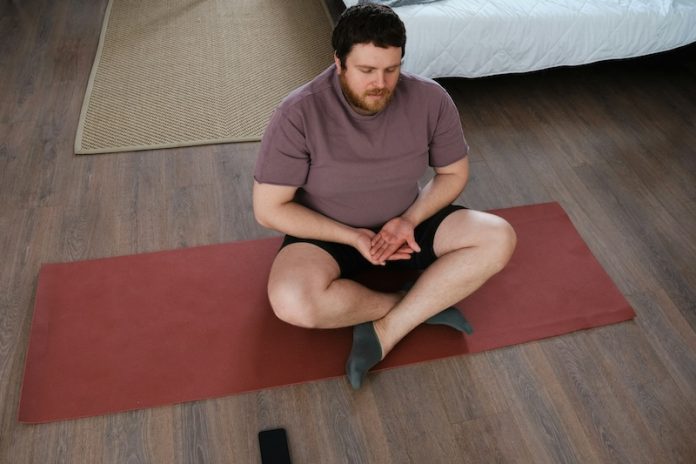
A recent study by researchers at the University of Cambridge has revealed that mindfulness training can lead to altered states of consciousness, such as disembodiment and a sense of unity.
These findings, published in PLOS ONE, highlight both the positive and potentially unsettling experiences that can arise from mindfulness practice.
Mindfulness-based programs have gained significant popularity as a method to reduce stress and manage depression and anxiety. Surveys indicate that 15% of adults in the UK have engaged in some form of mindfulness practice.
Anecdotal evidence has long suggested that mindfulness can alter perceptions of self and the world, sometimes in ways similar to the effects of psychotropic drugs.
Dr. Julieta Galante, from the Department of Psychiatry at the University of Cambridge, led a randomized controlled trial from September 2015 to January 2016 to evaluate the effectiveness of mindfulness in helping students cope with exam stress.
The trial provided a unique opportunity to explore whether mindfulness practice itself leads to altered states of consciousness or if individuals prone to such experiences are more likely to practice mindfulness.
A year after the trial, the researchers followed up with participants to investigate their experiences of altered states of consciousness.
They asked participants to complete a questionnaire covering 11 dimensions, including spiritual experiences, blissful states, disembodiment, and unity.
Unity experiences involve a sense of dissolving boundaries, where everything, including the perception of time, feels integrated. Disembodiment often involves sensations of floating or a dissolution of body boundaries, which can facilitate strong unity experiences.
The trial included 670 participants, with about a third from both the mindfulness training group and the control group completing the questionnaire.
The study found that individuals who underwent mindfulness training were twice as likely to experience unity and disembodiment compared to those in the control group.
The researchers also examined the relationship between the amount of mindfulness practice and the occurrence and intensity of altered states of consciousness.
They discovered that the more hours participants spent practicing mindfulness, the more likely they were to experience unity, disembodiment, or a blissful state.
Out of 73 participants who reported meditating in the prior six months, 43% experienced unity, 47% experienced blissful states, 29% experienced disembodiment, and 25% experienced insightfulness during meditation.
Dr. Galante noted that while the results do not definitively prove that mindfulness training causes these experiences, they strongly suggest a connection.
She emphasized that the findings align with other studies indicating that mindfulness practitioners are more likely to experience relaxed self-boundaries and an expanded spatial awareness beyond the physical body.
Dr. Galante, who practices mindfulness herself, shared her personal experiences of these altered states. She acknowledged the intensity of such experiences and the initial difficulty in discussing them with her meditation teacher.
She stressed the importance of awareness among mindfulness teachers and students about the potential for these experiences and the need for open communication.
While many altered states of consciousness are pleasant, some can be unsettling or alarming, particularly if unexpected. Dr. Galante emphasized the necessity of informing individuals about the possibility of these experiences when they begin mindfulness practice.
This knowledge can help practitioners understand that such experiences are not necessarily problematic but may warrant discussion with a mindfulness teacher or doctor, especially if they are perceived negatively.
In conclusion, the study underscores the complex nature of mindfulness training and its potential to induce profound changes in consciousness. These findings highlight the importance of awareness and open dialogue about the range of experiences that mindfulness can bring.
If you care about depression, please read studies about how dairy foods may influence depression risk, and B vitamins could help prevent depression and anxiety.
For more information about mental health, please see recent studies that ultra-processed foods may make you feel depressed, and extra-virgin olive oil could reduce depression symptoms.
The research findings can be found in PLoS ONE.
Copyright © 2024 Knowridge Science Report. All rights reserved.



